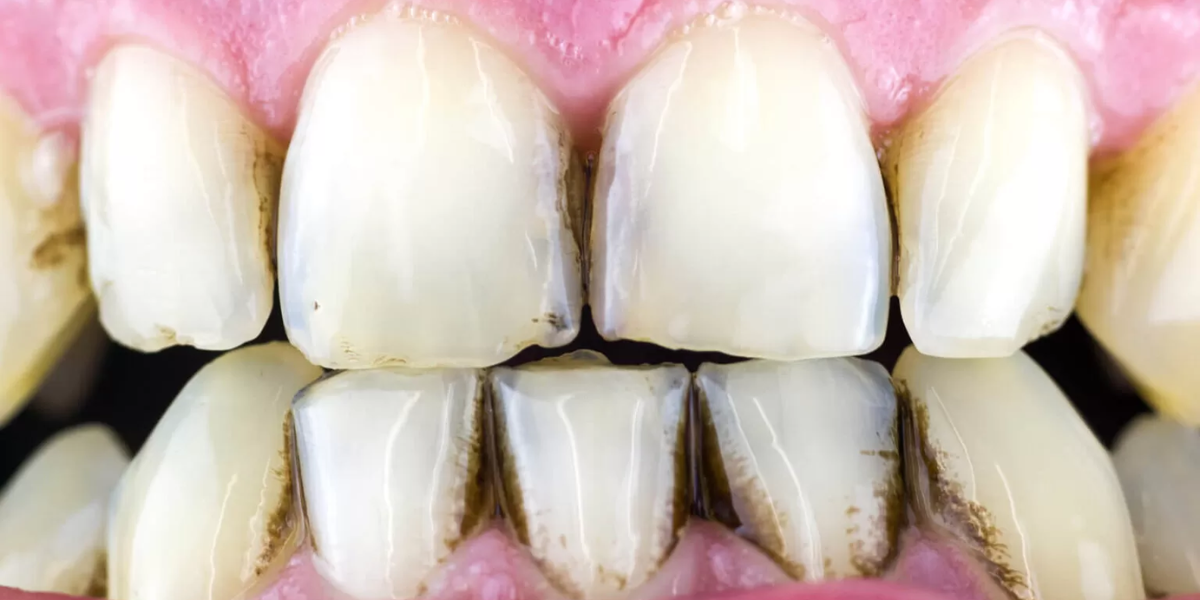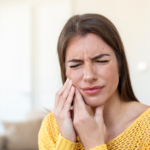Black Spots on Teeth and Gums: Just Stains or Something More Serious?
Black spots on teeth and gums can be alarming. They may look like simple stains, but sometimes, they indicate a deeper problem. Your oral health speaks volumes about your overall well-being. Ignoring these dark patches can lead to bigger dental issues. So, should you be concerned? Let’s find out.
Why Do Black Spots Appear on Teeth?
Your teeth can develop black spots for various reasons. Some are harmless, while others need immediate attention. Here are the most common causes:
1. Stains from Food and Drinks: Dark-coloured foods and drinks are the usual culprits. Tea, coffee, red wine, and cola can stain your teeth over time. Smoking and chewing tobacco also lead to dark patches.
2. Plaque and Tartar Build-up: When plaque hardens, it turns into tartar, which appears as black or brown spots. This build-up usually occurs near the gum line and can cause gum disease if not removed.
3. Tooth Decay: Cavities often start as small black spots. They occur when bacteria break down the enamel. If you don’t treat them early, they can grow and cause severe pain.
4. Fluorosis: Excess fluoride during childhood can lead to black or brown streaks on teeth. It doesn’t cause pain but affects the appearance of your teeth.
5. Dental Fillings and Crowns: Old fillings or metal crowns can leave dark marks on teeth over time. Silver fillings, in particular, can cause discolouration.
6. Medication Side Effects: Some antibiotics, like tetracycline, can cause permanent dark spots on teeth. This is more common if taken during childhood.
Black Spots on Gums – Should You Be Worried?
Spots on gums can be just as concerning as those on teeth. Here’s what might be causing them:
1. Natural Pigmentation: Some people naturally have dark spots on their gums due to melanin. This is common in individuals with darker skin tones.
2. Amalgam Tattoos: If you have metal fillings, small metal particles can get trapped in your gums, creating a black or bluish spot. This is harmless but permanent.
3. Oral Melanotic Macule: This is a harmless dark patch that appears on the gums or lips. It’s not linked to any disease.
4. Gum Disease: When gum disease worsens, it can cause dark patches due to tissue damage. If your gums are swollen, bleeding, or painful, visit a dentist.
5. Oral Cancer: In rare cases, black spots on gums can be a sign of oral cancer. If a spot grows, changes shape, or causes pain, don’t ignore it.
When Should You See a Dentist?
Not all black spots are serious, but some need professional care. You should see a dentist if:
- The spot is growing or changing shape.
- You experience pain or sensitivity.
- You notice bleeding gums or bad breath.
- The black spot appears suddenly.
- Your teeth or gums feel rough or bumpy.
How Are Black Spots Treated?
The treatment depends on the cause. Here’s how a dentist might help:
1. Professional Cleaning: If stains or tartar build-up is the issue, a deep cleaning can remove them.
2. Cavity Treatment: For tooth decay, the dentist may suggest fillings, crowns, or root canal treatment.
3. Teeth Whitening: If stains are the problem, professional whitening can help restore your smile.
4. Gum Treatment: If gum disease is present, deep cleaning and medication may be needed.
5. Biopsy (If Necessary): If there’s any suspicion of a serious condition, a biopsy may be done to rule out oral cancer.
Preventing Black Spots on Teeth and Gums
Prevention is always better than cure. Here’s how you can keep your teeth and gums healthy:
- Brush twice daily. Use a fluoride toothpaste to remove stains and plaque.
- Floss daily. It helps clean between teeth where a brush can’t reach.
- Limit dark-coloured foods and drinks. Reduce coffee, tea, and wine intake.
- Quit smoking. Tobacco stains teeth and damages gums.
- Visit the dentist regularly. A dental check-up every six months can prevent major issues.
- Stay hydrated. Drinking water helps wash away bacteria and food particles.
Black spots on teeth and gums are not always a major concern, but they shouldn’t be ignored. Some are just stains, while others signal dental problems. The best way to know is to get a professional opinion. If you’re unsure, search for a “dentist near me” and schedule an appointment. Your oral health deserves attention, and early action can save you from bigger problems later.



